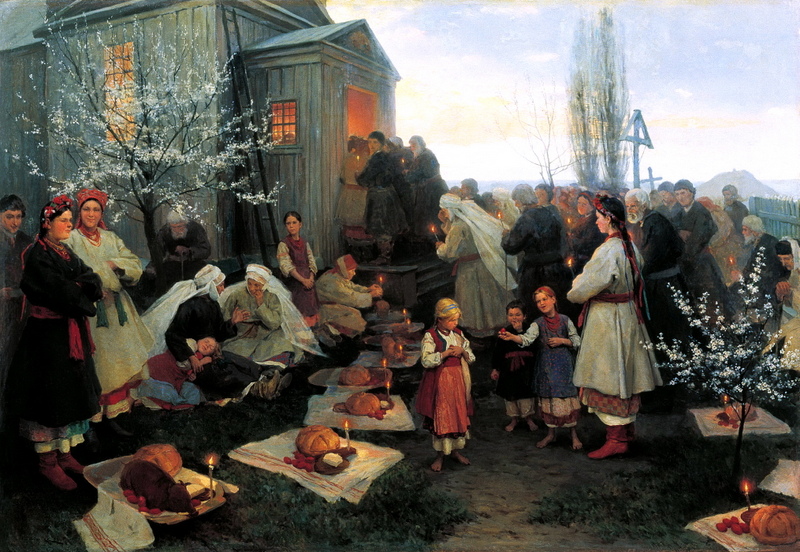 |
Ephesians 1:3-14 New Revised Standard Version
3 Blessed be the God and Father of our Lord Jesus Christ, who has blessed us in Christ with every spiritual blessing in the heavenly places, 4 just as he chose us in Christ before the foundation of the world to be holy and blameless before him in love. 5 He destined us for adoption as his children through Jesus Christ, according to the good pleasure of his will, 6 to the praise of his glorious grace that he freely bestowed on us in the Beloved. 7 In him we have redemption through his blood, the forgiveness of our trespasses, according to the riches of his grace 8 that he lavished on us. With all wisdom and insight 9 he has made known to us the mystery of his will, according to his good pleasure that he set forth in Christ, 10 as a plan for the fullness of time, to gather up all things in him, things in heaven and things on earth. 11 In Christ we have also obtained an inheritance, having been destined according to the purpose of him who accomplishes all things according to his counsel and will, 12 so that we, who were the first to set our hope on Christ, might live for the praise of his glory. 13 In him you also, when you had heard the word of truth, the gospel of your salvation, and had believed in him, were marked with the seal of the promised Holy Spirit; 14 this is the pledge of our inheritance toward redemption as God’s own people, to the praise of his glory.
********
A new year begins. As I write this reflection on the reading for the Second Sunday after Christmas, we’re approaching the completion of our second year under the influence of the COVID-19 pandemic, and the end seems as far out of sight as ever. Much has happened over the course of the past few years that is disheartening. Hope is in short supply. But as a new year begins and we spend one last Sunday observing Christmas, we open up this second reading for the day and hear a reminder that God
has chosen us for adoption. Is this not good news? Does this not provide a word of hope as we move forward?
This letter, according to its opening greeting, was written by Paul to the church in Ephesus. Now, there are plenty of questions about authorship when it comes to the Ephesian letter. You can find my take on the matter in Participatory Study Guide on Ephesians (pp. 2-8). There are reasons for and against Pauline authorship, but for our purposes, I’m going to leave it open and simply refer to the author as Paul.
After offering the greeting in verses 1-2, Paul offers a call to worship: “Blessed be the God and Father of our Lord Jesus Christ, who has blessed us in Christ with every spiritual blessing in the heavenly places” (vs. 3). Yes, blessed be the God and Father of our Lord Jesus who has blessed us not just with a few blessings, but every spiritual blessing. The foundation of these blessings is our status as having been chosen by God in Christ. If the primary audience is composed of relatively new Gentile Christians, this is a word of assurance. Just as God has chosen Israel, so God chooses to adopt Gentiles into the family.
Having chosen us in Christ, we are to therefore conduct ourselves as people who are “holy and blameless in love.” When did God choose us in Christ? According to Paul, the election took place before the foundation of the world. So, what does Paul mean by this? Did God write a script before creation took place so that every action and reaction that has taken place since has been scripted? We do what the script says. It’s possible that Paul meant such a vision, but I’m not so sure. If that is the way things work, then surely, we can’t be held responsible for what happens in our lives. Every act of violence and natural disaster; it is just part of the script, isn’t it? Wars and disease. They are just part of the plan, are they not? I don’t know about you, but that doesn’t sound very appealing. It seems as if, if that is true, then we’re simply puppets whose strings are pulled by God. Thus, little or no room is for freedom and responsibility. Now, Paul could affirm that premise, but I’m not sure he does.
Our problem in reading this passage is that we tend to read Scripture in very individualistic terms. So, if God destines us for adoption, then do I have a choice in the matter? But, what if it’s not my personal status that is in question here, but the means by which God chooses to adopt us and the purpose of our adoption? Thus, the God who destined Jesus to be the one through whom God adopts us into the family of God, which is the church. Secondly, God chose us from before the foundation of the world to be holy and blameless in love. If we read it this way, we can also read it eschatologically. What Paul is focused on here is God’s ultimate purpose, which God will bring to fruition. That hope is that all of God’s creation would experience adoption in Christ. This is our destiny. Now, do we have a choice in this? I believe we do, but I also believe God will leave no stone unturned until God achieves the restoration of all things.
As I reflect on this passage, I believe the future is open. That is, I don’t believe that God has a script with every step along the way detailed. However, God is not without a plan, even if it can and will be altered along the way. I like to think here in terms of a GPS that recalculates when a change is made. It’s not a perfect analogy, but it might help us think about how God has in mind an ultimate destination but understands that time and pathway are always changing and thus requires adaption.
So back to Ephesians and God has predetermined, which is our redemption, the message then is that God has made a way for us to be redeemed. That means is through the blood of Jesus so that our trespasses might be forgiven. That, according to grace. Paul doesn’t say how the blood of Jesus is the means of our redemption, only that it is. Therefore, God has made known to us God’s will set forth in Christ so that in the fullness of time all things will be gathered up in him, both things in heaven and on earth (Eph. 1:10). Here is where I want to stop for a moment. Paul speaks here of the restoration of all things. It is the mystery of God’s will but it looks forward to that moment, whenever that moment takes place, God gathers everything up and redeems it bringing to a conclusion that which is so that something new will emerge. What does that mean for us? Does this speak of universal salvation, what the eastern church speaks of as apokatastasis? I would suggest it does. The future is still open, but the promise is that
God will, as intended, conclude with the restoration of all things. That seems to mean some form of universal salvation.
With this promise that all things will be redeemed comes another, and that has to do with the inheritance. As adopted members of the family, we are also heirs of the promise. Therefore, having been destined for this purpose we can “set our hope on Christ” and live for the praise of his glory” (Eph. 1:11-12). With this purpose set forth, we hear that having believed, we have also been marked by the seal of the Holy Spirit (vs. 13). This must mean, having been baptized, we have the assurance of our place in the redeemed community of the church. So, having been marked by baptism, which is the pledge of our inheritance, we can now live as God’s people, for the glory of God. Therefore, we can worship God, as the people of God, adopted, through Christ our Lord.





